April 2025
The global automotive battery tester market is projected to reach USD 1.67 billion by 2034, growing from USD 1.05 billion in 2025, at a CAGR of 5.49% during the forecast period from 2025 to 2034.
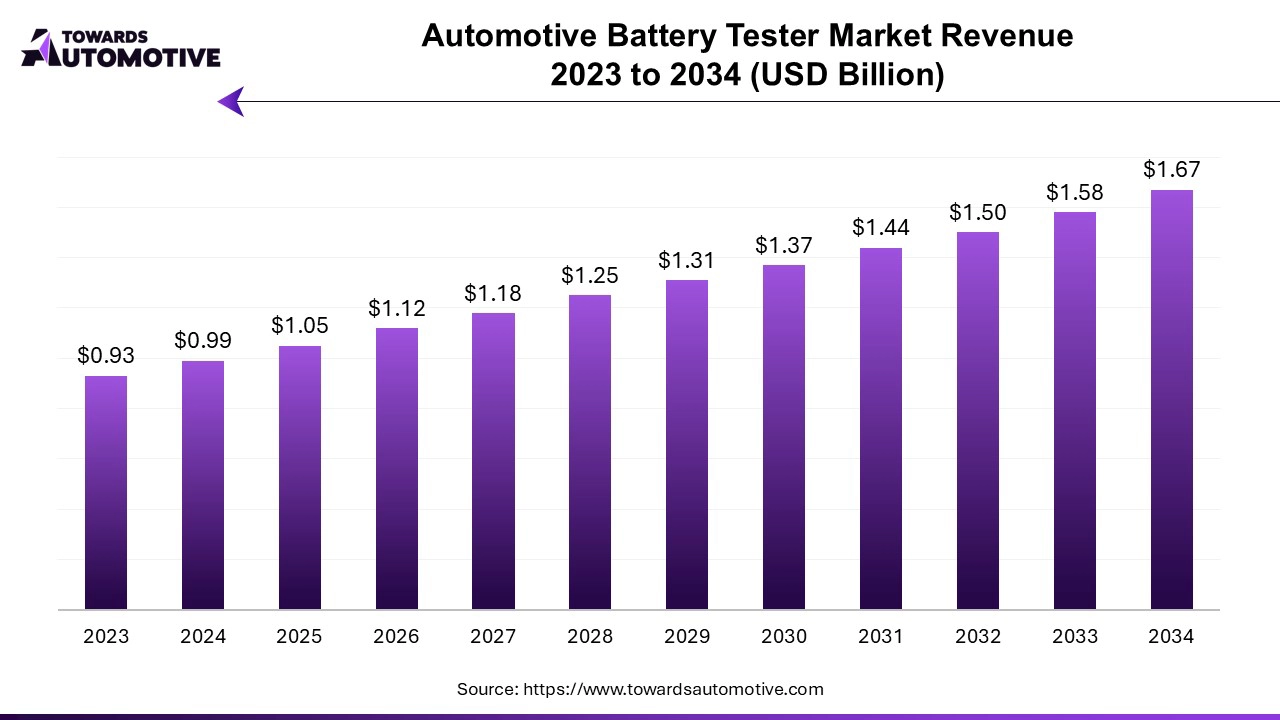
Unlock Infinite Advantages: Subscribe to Annual Membership
The automotive battery tester market is witnessing significant growth, driven by the increasing reliance on advanced automotive technologies and the growing need for efficient battery maintenance. As vehicles become more sophisticated, with a rising number of electric and hybrid models on the road, the demand for reliable battery testing solutions has surged. Automotive batteries play a crucial role in vehicle performance, impacting everything from engine ignition to the operation of electronic components. Consequently, automotive service centers, workshops, and manufacturers are investing in advanced battery testers to ensure optimal battery health and performance.
Moreover, the proliferation of electric vehicles (EVs) has further propelled the market, as these vehicles require specialized testing equipment to assess battery capacity, charge cycles, and overall health. The advancements in battery technology, including lithium-ion and solid-state batteries, necessitate sophisticated testing devices capable of providing accurate diagnostics and performance metrics. Consequently, manufacturers are developing innovative battery testers that can evaluate different types of batteries, including traditional lead-acid batteries, lithium-ion batteries, and others, to cater to the diverse needs of the automotive sector.
The automotive battery tester market is also being influenced by the increasing focus on sustainability and environmental considerations. Proper battery management can extend battery life and enhance the performance of electric vehicles, reducing waste and the environmental impact associated with battery disposal. Additionally, the rise of smart technologies, such as connected devices and the Internet of Things (IoT), is leading to the development of smart battery testers that can provide real-time monitoring and diagnostics, thereby enhancing the efficiency of battery management systems. Overall, the automotive battery tester market is poised for significant growth as the industry shifts towards more sustainable and technologically advanced solutions.
AI plays a transformative role in the automotive battery tester market by enhancing the accuracy, efficiency, and functionality of battery testing processes. AI algorithms can analyze historical battery performance data to predict potential failures and assess the remaining useful life of batteries. This predictive capability allows automotive technicians to make informed decisions about maintenance and replacements, thereby reducing unexpected breakdowns and improving vehicle reliability.
AI-powered battery testers can continuously monitor battery parameters, such as voltage, temperature, and charge cycles. By leveraging machine learning models, these testers can detect anomalies and provide instant feedback, helping technicians address issues before they escalate into major problems.
AI streamlines the testing process by automating routine diagnostics. This reduces the time technicians spend on manual testing, increases throughput in service centers, and enhances overall productivity. Automated testing can also minimize human errors, leading to more consistent and reliable results.
AI technologies enable the development of intuitive user interfaces that provide technicians with easy-to-understand visualizations and insights from battery tests. This can include detailed reporting, recommendations for maintenance actions, and alerts for potential issues. The integration of AI with IoT technology allows battery testers to connect with other vehicle systems and data sources. This interconnectedness provides a more comprehensive view of battery health and performance, leading to better maintenance strategies and enhanced vehicle performance.
The rising demand for lithium-ion batteries significantly drives the growth of the automotive battery tester market. As electric vehicles (EVs) and hybrid vehicles gain popularity due to their efficiency and reduced environmental impact, lithium-ion batteries have become the preferred energy storage solution for these advanced automotive systems. The growing number of EVs on the road necessitates reliable testing equipment to ensure battery performance, longevity, and safety. Automotive battery testers designed specifically for lithium-ion technology are crucial for assessing battery health, diagnosing issues, and optimizing charging cycles. As consumers and manufacturers alike prioritize battery maintenance and performance, the need for accurate and efficient testing solutions increases. Additionally, regulatory standards surrounding battery safety and efficiency further emphasize the importance of regular testing, pushing automotive service providers to invest in advanced battery testing technologies. Consequently, the rise in lithium-ion battery applications in vehicles creates a robust demand for specialized battery testers, positioning the automotive battery tester market for substantial growth. This trend reflects the broader shift toward electrification in the automotive sector, underscoring the critical role of battery testing in ensuring the reliability and performance of modern vehicles.
The automotive battery tester market faces several restraints that may hinder its growth. One significant challenge is the high cost associated with advanced testing equipment, which can be a barrier for smaller automotive service providers and workshops. Additionally, the rapid pace of technological advancements can render existing battery testers obsolete, requiring constant investment in new technologies. The lack of standardized testing protocols for various battery types also complicates the adoption of battery testers across different manufacturers. Furthermore, the increasing complexity of automotive electrical systems may necessitate more sophisticated testers, leading to higher development and maintenance costs that could limit market expansion.
The emergence of wireless and portable solutions in the automotive battery tester market is creating significant opportunities for growth and innovation. As the automotive industry evolves, technicians and automotive service providers are increasingly seeking tools that offer convenience and efficiency. Wireless battery testers enable technicians to perform diagnostics without being tethered to a stationary power source, allowing for greater flexibility in various working environments, whether in a service center or at a customer's location. These portable solutions often come equipped with Bluetooth or Wi-Fi connectivity, enabling users to connect their devices to smartphones or tablets. This connectivity allows for real-time data access, analysis, and reporting, significantly improving the speed and accuracy of battery assessments. Moreover, portable testers can streamline operations by reducing the need for multiple devices, as many modern testers are designed to evaluate various battery types and conditions. As consumers continue to prioritize convenience and speed in automotive services, the demand for wireless and portable battery testers is expected to rise. This shift not only enhances the user experience but also presents opportunities for manufacturers to innovate and expand their product offerings, aligning with the growing trend of digitization and smart technology integration in the automotive sector.
The simple battery tester segment held the largest share of the market. The simple battery tester segment plays a pivotal role in driving the growth of the automotive battery tester market due to its affordability, user-friendliness, and widespread applicability. As vehicle maintenance becomes increasingly essential for ensuring optimal performance and longevity, simple battery testers have gained popularity among both professional mechanics and DIY enthusiasts. These testers typically feature straightforward designs that allow users to quickly assess a battery's state of charge and overall health with minimal technical expertise. Their ease of use is a significant factor, as they often come with clear instructions and visual indicators, making it easy for users to interpret results without extensive training.
Moreover, simple battery testers cater to the growing demand for cost-effective solutions in the automotive sector. As consumers and service centers look for ways to reduce operational costs, these affordable testers offer a practical alternative to more complex, expensive diagnostic tools. Their low price point makes them accessible for a broader range of users, including small workshops and individual vehicle owners, further expanding the market reach.
The versatility of simple battery testers also contributes to market growth. They can be used on various types of batteries, including lead-acid, lithium-ion, and AGM batteries, making them suitable for a wide array of vehicles, from passenger cars to commercial trucks. This adaptability enhances their appeal in diverse automotive applications.
Additionally, with the increasing awareness of battery maintenance and health, consumers are becoming more proactive about monitoring their vehicle batteries. This trend encourages the adoption of simple battery testers as essential tools for regular maintenance checks, boosting demand in the automotive battery tester market. Consequently, the combination of affordability, ease of use, versatility, and heightened consumer awareness positions simple battery testers as key drivers of growth in this evolving market.
The aftermarket segment led the industry. The aftermarket segment plays a crucial role in driving the growth of the automotive battery tester market, primarily due to the increasing emphasis on vehicle maintenance and the rising number of vehicles on the road. As car owners become more aware of the importance of battery health in ensuring reliable vehicle performance, the demand for automotive battery testers in the aftermarket is surging. Aftermarket services provide vehicle owners with the opportunity to assess and maintain their batteries independently, enhancing their vehicle's longevity and performance.
One of the primary factors contributing to the growth of the aftermarket segment is the increasing number of service centers and workshops that specialize in battery maintenance and replacement. These facilities often seek reliable, efficient battery testers to provide accurate diagnostics and ensure customer satisfaction. Additionally, the growing trend of DIY maintenance among vehicle owners has spurred demand for user-friendly battery testers that can easily be used at home. As consumers look for ways to save money on maintenance costs, having the ability to test and monitor their vehicle's battery health independently has become increasingly appealing.
Moreover, the aftermarket segment benefits from the rising trend of electric and hybrid vehicles, which require specialized battery testing solutions. As more consumers transition to these vehicles, the demand for advanced battery testers capable of handling lithium-ion and other battery technologies will continue to grow. The expansion of online marketplaces and e-commerce platforms also enhances the accessibility of automotive battery testers in the aftermarket, allowing consumers to find and purchase the right tools for their needs conveniently.
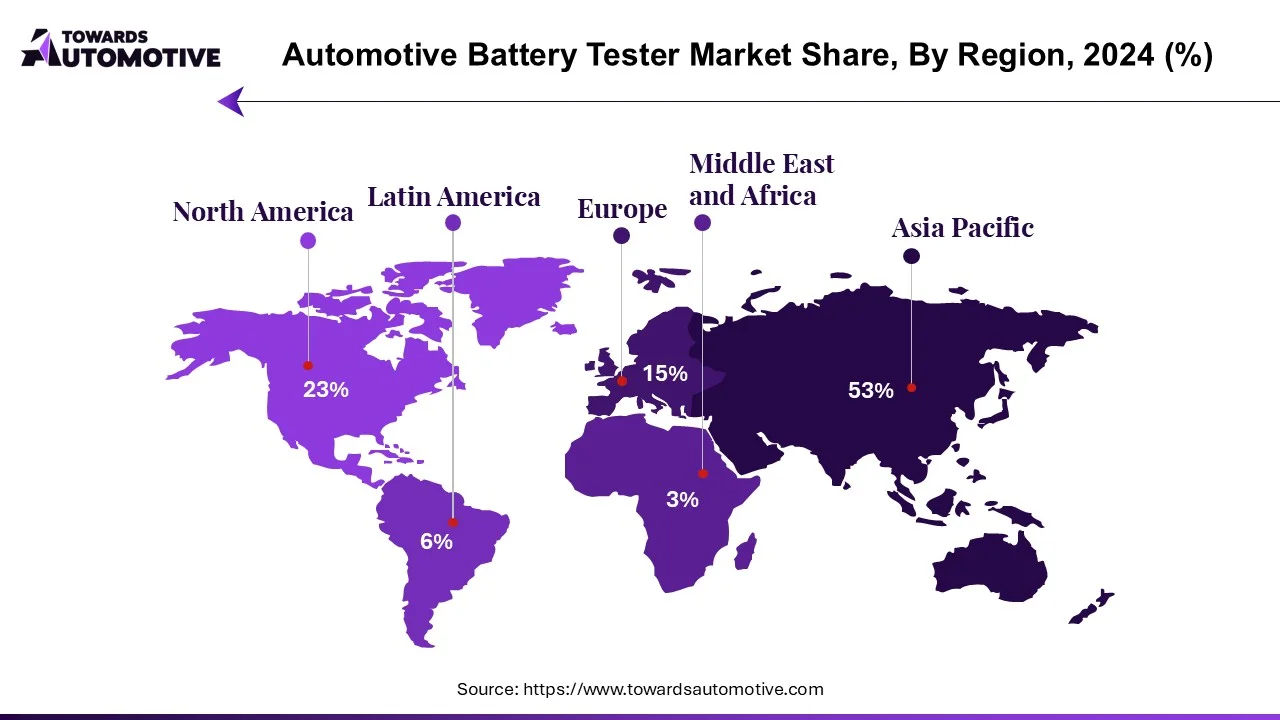
Asia Pacific held the dominant share of the automotive battery tester market in 2023. The automotive battery tester market in the Asia-Pacific (APAC) region is experiencing significant growth, driven by several critical factors. Firstly, increasing vehicle production and ownership across APAC countries, particularly in nations like China, India, and Japan, has created a burgeoning market for automotive components, including battery testers. As more vehicles hit the roads, the need for efficient battery maintenance and diagnostics has intensified, prompting both consumers and service providers to seek reliable testing solutions to ensure optimal performance. Secondly, the expansion of the aftermarket services sector plays a crucial role in the growth of this market. With rising vehicle ownership, independent repair shops and service centers are increasingly investing in advanced battery testing equipment to cater to the diverse maintenance needs of various vehicles, enhancing their service offerings and improving customer satisfaction.
Additionally, government initiatives and regulations aimed at promoting vehicle safety and environmental sustainability further bolster the demand for battery testers. Many APAC governments are implementing stringent standards for vehicle emissions and efficiency, necessitating regular battery checks to comply with regulations. These initiatives encourage vehicle owners to prioritize battery maintenance, thereby driving demand for reliable testing solutions. The emphasis on electric and hybrid vehicles in APAC is another growth factor, as these vehicles require specialized battery testing equipment. As consumers become more aware of the importance of battery health and performance in enhancing vehicle longevity and efficiency, the automotive battery tester market is poised for substantial expansion in the region, reflecting a shift towards greater vehicle reliability and environmental responsibility.
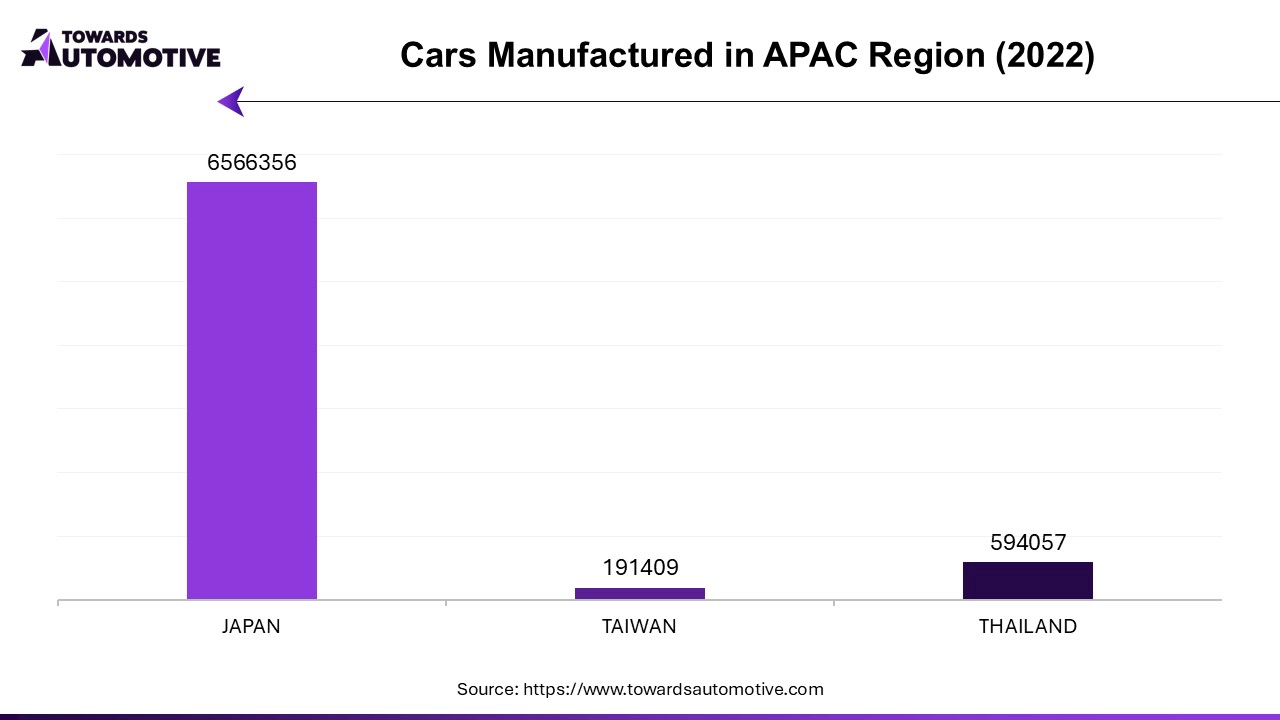
North America is observed to grow at the fastest rate in the automotive battery tester market. The automotive battery tester market in North America is experiencing robust growth, primarily driven by the rise of electric and hybrid vehicles, increasing e-commerce sales, and the integration of advanced diagnostics. The growing adoption of electric and hybrid vehicles is a significant catalyst for this market. As more consumers opt for eco-friendly transportation options, the demand for specialized battery testers capable of evaluating the performance and health of these advanced battery systems intensifies. Battery testing becomes crucial for ensuring the reliability and efficiency of electric vehicles (EVs), prompting manufacturers and service providers to invest in high-quality testing equipment.
Moreover, the surge in e-commerce sales has contributed to the expansion of the automotive battery tester market. With the increasing reliance on online platforms for automotive parts and accessories, consumers are more informed and proactive about vehicle maintenance, including battery health. This shift drives demand for accessible and efficient battery testing solutions, as customers seek reliable tools to ensure their vehicles operate optimally. E-commerce platforms often highlight the importance of battery health, encouraging consumers to prioritize regular testing.
Additionally, the integration of advanced diagnostics in automotive battery testers is reshaping the market landscape. Modern testers equipped with sophisticated software can provide comprehensive analyses, real-time monitoring, and performance predictions, making them essential for both automotive professionals and consumers. These advancements enhance the testing process, enabling faster and more accurate assessments of battery conditions. As vehicle complexity increases and technology advances, the need for reliable battery diagnostics is more crucial than ever.
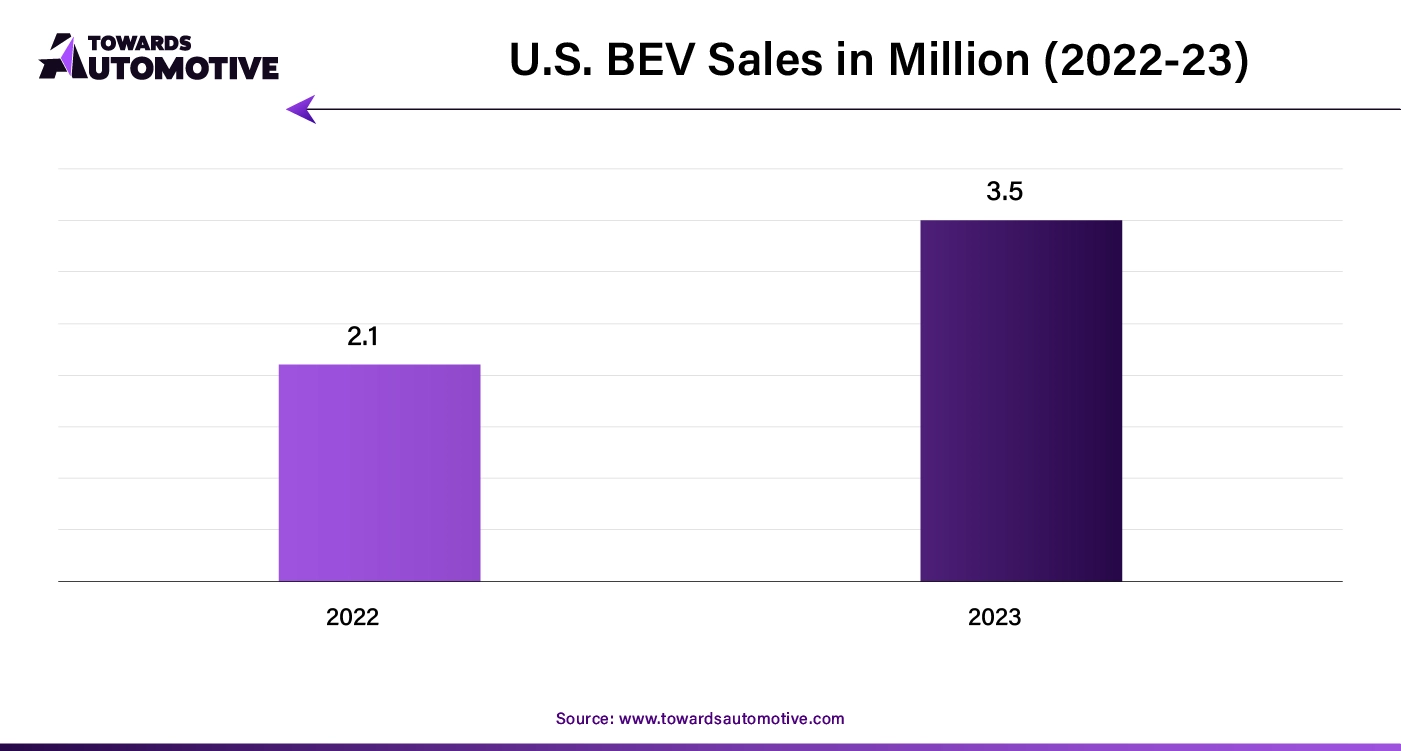
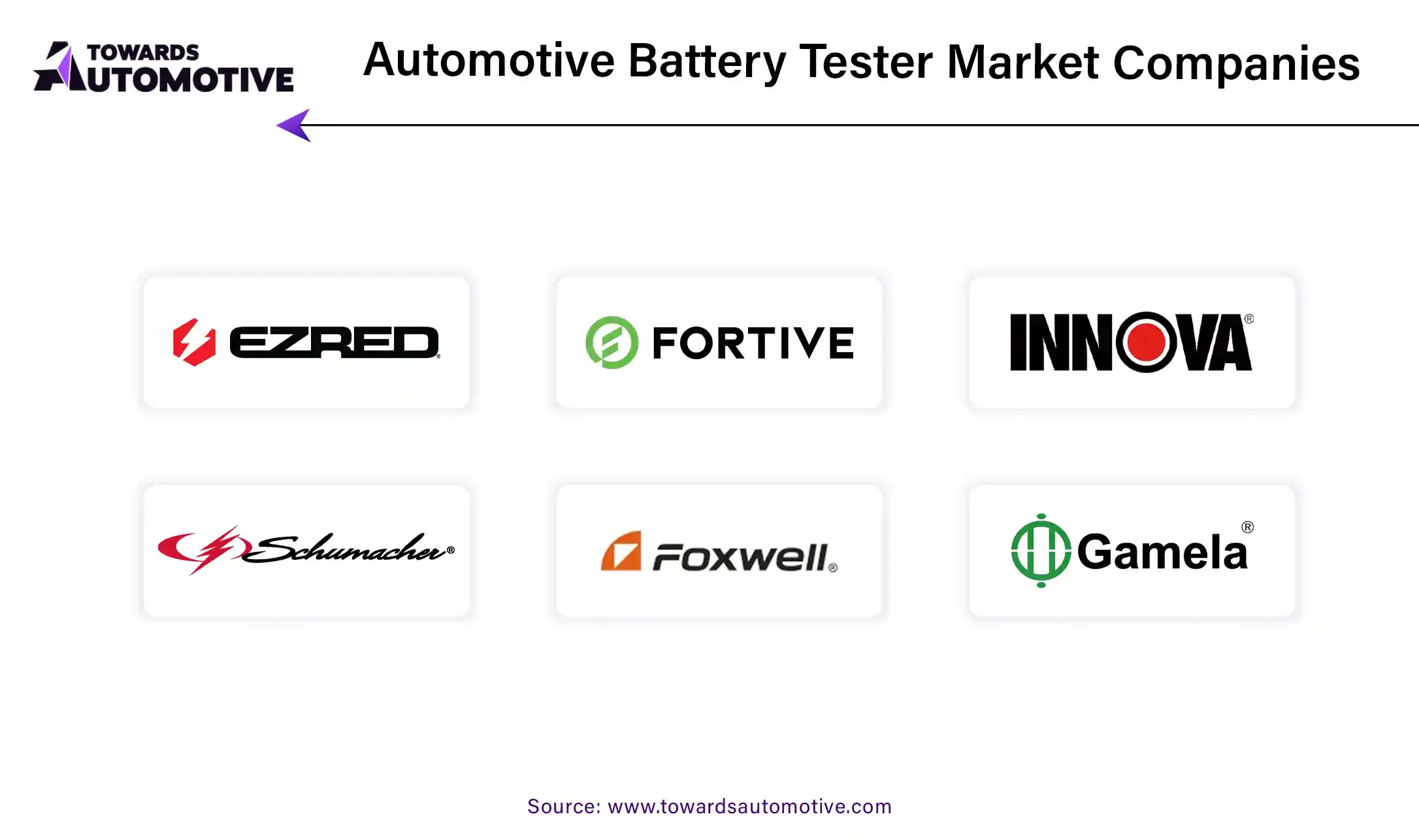
By Type
By Application
By Region
April 2025
April 2025
April 2025
April 2025
Dr. Arjun Patel is a distinguished expert in the automotive industry, holding advanced degrees in Automotive Engineering and Mechanical Engineering. His expertise spans automotive market dynamics, technological advancements, and sustainable practices. Dr. Patel excels in conducting in depth research and analysis on market trends, consumer preferences, and the economic implications within the automotive sector. He is renowned for his insightful publications on topics such as electric vehicles, autonomous driving technologies, and the evolution of sustainable transportation solutions. Dr. Patels research contributions have significantly advanced understanding in the field, earning him recognition as a leading authority in automotive research and analysis.
We offer automotive expertise for market projections and customizable research, adaptable to diverse strategic approaches.
Contact Us